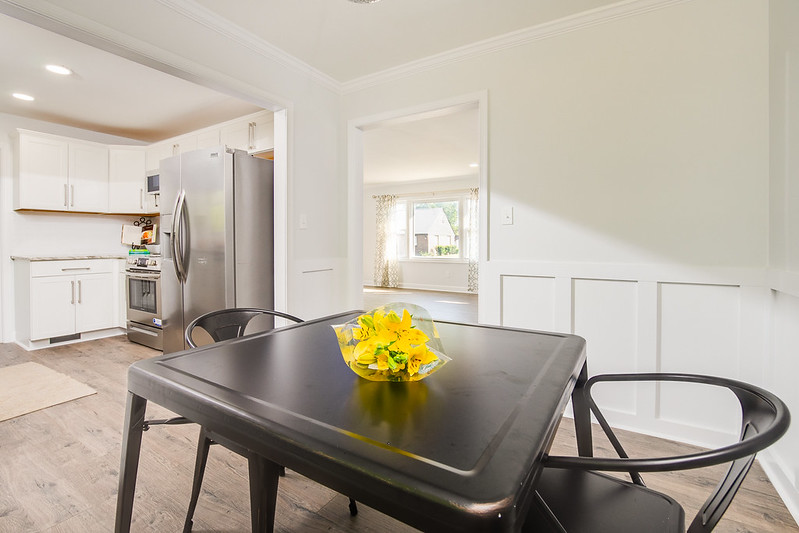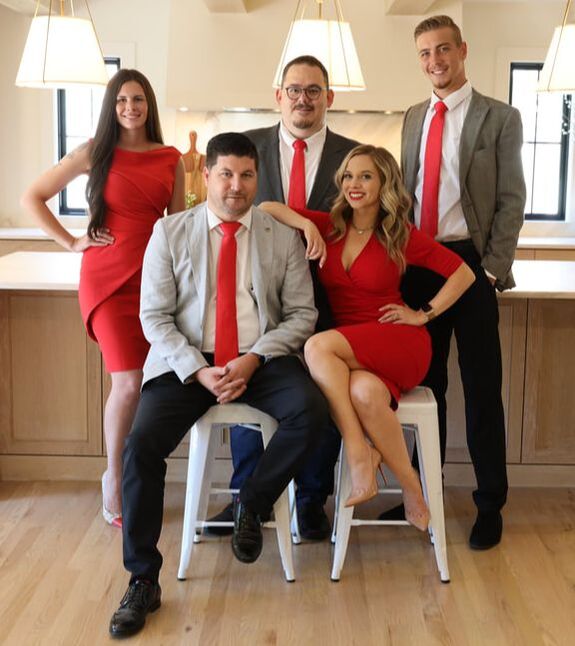The Burke Team Real Estate
Guest Post by Patrick Young, Able USAHouse-hunting can be a stressful endeavor, as any homeowner can probably attest, and that tends to be especially true when you have a disability. Personally, I’ve often found it difficult not to fall in love with a home before I know if it’s able to accommodate my specific needs. After all, it’s hard not to swoon over a property you see online, only to deal with the emotional fallout after you discover that it doesn’t check the most important boxes. Although I’d like to say this hasn’t happened to me, I must admit that I’ve encountered disappointment more than once. Are you on the hunt for an accessible home? You may quickly discover that some disabilities can require certain design elements and home features to ensure safety and comfort, which can make finding an accessible new home more of a hassle. In addition to working with a great real estate agent, there are a few things that buyers who are living with disabilities should keep in mind during their home search. You May Need to Budget for Additional Modifications When it comes to finding a home with accessibility features, each person’s needs can be vastly different. So during your house hunt, you may need to think about adding features and making modifications before or after you move into your new home. Tally the costs and consider them when making your offer. For example, one modification you might consider is replacing carpet with hardwood flooring. If you use a wheelchair or other assistive devices, having hardwood floors can make it much easier to move about your home, and hardwood floors can also be easier to keep clean. While this can be a rather costly upgrade, choosing less expensive woods like pine or bamboo can keep project expenses more manageable. Having subfloors that are in good condition and completing the upgrade before your heavy furniture is moved in can also keep costs lower. For smaller homes and less-involved hardwood floor installations, homeowners can pay as little as $1,000. Other home modifications you may need to budget and plan for include widening doorways for wheelchair access or remodeling bathrooms for fall prevention. You May Be Able to Use Grants for Accessibility Modifications Making modifications to your new home may be your safest bet for ensuring that it truly fits your needs because finding a home that includes the accessibility features and upgrades you need to live a comfortable, safe, and independent life can be challenging. If you’re worried about being able to afford accessibility changes to a new home, rest assured that there are grants and funding programs that can help you out. Both low-income and veteran homeowners may qualify for special grants aimed at helping those with disabilities make the necessary adjustments to their homes. VA grants can be especially helpful for veteran home buyers, since veterans can use these grants to purchase accessible homes or make needed upgrades. In addition to home modification and accessibility grants, qualified veterans who are living with disabilities may also be able to use VA loans to purchase a home with no money down. Then they can put the savings toward modifications. Utilize Online Tools In Your Home Search Sadly, finding accessible homes can be a challenge for most buyers. This is an ongoing issue facing realtors and buyers alike, but there are few online resources that can make your search a little easier. From the Fair Housing Act to ADA requirements, you can use these resources to research specific requirements if you plan on purchasing a new home within a building or community. If you want to buy a more traditional property, however, you may need to dig a little deeper to find properties that fit your unique needs. You can compare listings you find through real estate websites that have been tailored to help those with disabilities. For example, the site Accessible Properties provides listings for homes, apartments, and other properties that all include accessibility design features. Just enter your zip code, and you should be able to view wheelchair-accessible homes in your area. If you are looking for financial resources to help you buy an accessible home, know that there are programs and special loans for non-veterans, too. When it comes to finding an accessible home that fits your unique needs, and walking you through the home buying process, a good real estate agent can help! Contact Josh and Kristi Burke at RE/MAX Innovations to start your search. Author, Patrick YoungPatrick Young is an educator and activist. He believes people with disabilities must live within a unique set of circumstances. Patrick created Able USA to offer resources to others with disabilities to help them navigate the various aspects of life as a person with a disability.
2 Comments
|
The Burke TeamReal Estate Agents with RE/MAX Innovations Archives
March 2024
|
Proudly powered by Weebly


 RSS Feed
RSS Feed